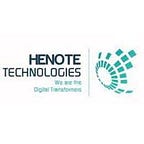Proximity Marketing: 6 Sectors that Deploy Beacon Technology
Just about every sector is in the midst of a digital disruption, an ever-changing, never-ending list of threats that could test companies’ relevance in the coming years and could drive them into obsolescence. For most of them, the transformation is only in its infancy.
It, therefore, makes sense that business schools are obsessed with creative destruction — the process of tearing down an existing, outdated system to build a new one.
Beacon technology has been generating buzz since Apple unveiled iBeacon in 2013. Beacons allow brands to push messages to their customers who have consented to them, and engage with them in a more personalized manner. The customer effort here in driving the engagement is minimal as brands could communicate without them having to do anything at all.
Beacons picked up steam in the latter half of 2014. The popularity gathered even prompted the Harvard Business Review, to call the technology “the missing piece in the whole mobile-shopping puzzle.” In our earlier pieces, we’ve covered what proximity marketing is and why beacon technology is winning the race.
Retailers, Major League Baseball, American Airlines, and even B2B companies started deploying beacons in trade show booths and corporate lobbies. Beacons are championing a new paradigm for communications between brands and customers.
From the brand’s standpoint, beacons help collect data which could help them improve their operations, marketing, sponsorship, and more. This helps track the movements of customers in a crowded place and engage with them personally.
The data that the brands collect about these customers could range from information about how long they wait in queues, how long it takes them to enter a venue, when attendance peaks, etc.
Here are the sectors that are using beacons to their advantage:
1. Retail
Personalizing retail experiences goes a long way in helping a brand retain customers. This personalization typically happens through knowing the customer location, demographics, and behavior so communications and promotional offers are delivered accordingly.
The retail industry were the first to embrace beacons when heavy hitters like Macy’s and Lord & Taylor became suitors. Beacons serve as a conduit between customers and retailers particularly inside the retail store. It does so after the customer has consented to it.
Beacons helps retailers gather data about customer preferences based on their online and offline interaction with the brand, and personalize their offers accordingly.
PayPal has integrated beacons to make transactions cash-less and card-less. This ‘hands-free’ is expected to drastically improve the checkout phase, arguably one of the most frustrating experiences inside the retail store.
2. Real Estate
The real estate sector could use beacons to notify about properties that go on sale in the neighborhood that customers tend to miss out because of their busy schedules.
Beacons help break the ice before the potential buyer and the seller meets for the first time as the device would have already helped them access property information, dealer information, and even help take virtual property tours.
3. Travel industry
Beacon technology helps to detect a customer or potential customers in a locale and sends timely messages to their smartphone or tablet.
The travel industry uses this to add value to tourists visiting a new place. To help retain the spontaneity of travel, beacons could alert travelers about different events and appointments, and offer discounted entry to museums or galleries.
Some industries have implemented beacon technology to target customers with high disposable income during their commute. Cabs in the United Kingdom are using beacons so customers receive personalized marketing messages during the commute.
4. Sports stadiums
Whenever a big gathering beckons, location-based technology become go-to devices for marketers and brands.
Catering businesses in sports stadiums have been using beacons to process orders to cope with managing salesmen, point-of-sale counters, order managers, etc. Fans could also book cab-hailing services through beacons installed in their mobiles. The app could even relay the point-of-contact with your seat location and details.
5. Food industry
In the food industry, beacons could be used for everything from processing grocery orders, to notifying a passerby about promotional offers, to creating a pleasant dining experience for the customers. Beacons allow customers to book their table, reduce the waiting time, collect bill payments directly through the app. Restaurants in Tokyo have gone a step further in making the menu and the user reviews visible to the customer through their apps.
6. Banking
Beacons are also seeing adoption from the banking industry. Beacon technology could be leveraged to disseminate information on customers’ accounts, reduce customer waiting time, and provide information about other banking services.
Originally published at henote.com
